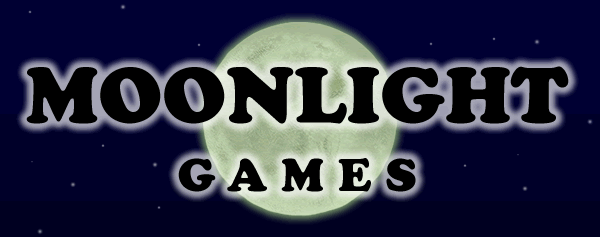Up up, down down, left right, left right, b, a, b, a, select, start.
For all you youngsters out there, that combination, if input quickly during the start screen of Contra for the NES awarded the player with 30 lives. Because let's face it; very few people could defeat that game on the 3 lives you start with [Editor's Note: I totally can]. When I learned that ‘'cheat code" I had so many questions: Where did it come from? Was I breaking the game somehow?? How did the first person even find it??? Of course, I know now that such codes are input by the programmers of the game, but at the time it was a total mystery. When Travis first approached me to assist in the creation of Runelands, the Konami Code was the first thing that came to mind.
Hi all, I'm Fish, the lead tester in the Moonlight Games crew. This is my first ever blog and I may ramble a bit but stick with me as I tell you of the joys and woes of testing a brand new game!
Let me be clear: Testing, while it may be fun at times, is not for the feint of heart or the easily distracted person. It takes large amounts of patience, great attention to detail, and a very specific point of view. In the end, the hope is of course a polished product that brings the player back time and again, but getting there is a very long process.
The first step in testing is to have a genius programmer like Travis have the foolhardy idea to create his own game. Then have friends with equally foolhardy ambitions such as Matt and I cosign on the project (probably after several snifters full of Woodford Reserve and exceptionally strong Manhattans) and vow to help in any way we can. Once the basics are taken care of, and more motivational beverages are consumed, the nitty-gritty work of creation begins, but if you care about that go ask Travis because I couldn't program a thermostat let alone a game. At some point though, there is enough ground work laid that functionality must be tested, and that's where I come in.
In my opinion, the earliest stages of programming and testing are the best. At this point, you're very much excited about the product because, come on, we are people who love shiny things like the newest phones, clothes, and of course video games! Every time you start the game up in the beginning is a bit like unwrapping the latest Android device (shut up IPhone fans) or Christmas morning when you’re still a kid and not expected to give, just receive, awesome gifts. After a few months, that device is just another item in your pocket or toy in your chest that you might still play with regularly, but it has definitely lost some of its luster. And two years later, you’re ready to replace that old, outdated piece of junk that is starting to malfunction. Similarly, after a few months of testing the game becomes a regular part of your routine, something you look at multiple times a day, and while you still enjoy it there are times you’d much rather look at something else. The nice thing about a developing video game though is that it never really gets outdated, since Travis is constantly making changes. Every change reignites my mechanic’s fire and I’m off looking to see what I can break next, ideally so I can help fix it. It's this feeling of discovery that keeps things fresh version after version.
As I mentioned before, testing can take quite a bit of effort, but if you have the right mindset it can also be genuinely fun. Like my bio says, I’m a mechanic by trade, so I spend my days taking things apart and diagnosing problems. This translates well into testing, as I am continuously looking for problems by testing as many scenarios as possible, especially ones that no rational person would ever try! Every gamer has a unique style (I love playing as high risk high reward type characters...GO VANGUARD!) while others like more balance or have very passive styles. Part of testing is trying out as many styles as you can, which really makes me think outside my normal comfort zone. With a tactical RPG like Runelands, this is especially important because as the game grows so do the possible ways to play. Will you be more aggressive with Feigr and Hellhundr, or will you focus on healing and land control with Akiri and Trestig? A big part of what I do is trying out every possible combination and suggesting ways to keep things balanced. One of the coolest parts of my job is seeing how my tests and suggestions have been incorporated into the next version. I'm sure most testers don't get that kind of immediate gratification, but it's definitely one of the benefits of having a small, close-knit team. My notes have affected the look and play of the Valtir, level design, and even parts of the story that you’ll be experiencing. So if you are a conceited self important prick like myself, you’ll really enjoy testing and being overly critical of someone's product that you couldn’t create on your own if you had a gun to your temple. Kind of like constantly berating every automotive engineer I’ve never met for the rusted bolt that you couldn’t get a tool on if your last bit of skin on your knuckles depended on it. But like I said, I ramble. Knob Creek will do that to you. [Editor's Note: I swear this blog is not a paid advertisement for bourbon. Although maybe it should be...]
TL:DR I’ve found testing to be a really fun and entertaining process, but it can also be tedious and time consuming. Overall I have enjoyed the journey, and I hope you enjoy the end result.
